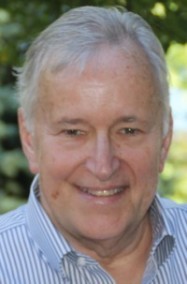Les AuCoin
| Les AuCoin | |
|---|---|
 |
|
| Member of the U.S. House of Representatives from Oregon's 1st district |
|
|
In office January 3, 1975 – January 3, 1993 |
|
| Preceded by | Wendell Wyatt |
| Succeeded by | Elizabeth Furse |
| Majority Leader of the Oregon House of Representatives | |
|
In office 1973–1975 |
|
| Preceded by | Thomas Young |
| Succeeded by | Ed Lindquist |
| Member of the Oregon House of Representatives from the 4th district |
|
|
In office 1971–1975 |
|
| Preceded by | David Frost |
| Succeeded by | Bill Ferguson |
| Personal details | |
| Born |
October 21, 1942 Portland, Oregon, U.S. |
| Political party | Democratic |
| Spouse(s) | Sue Swearingen (1964–present) |
| Children | 2 (including Kelly) |
| Education |
Portland State University Pacific University (BA) |
| Military service | |
| Allegiance |
|
| Service/branch |
|
Walter Leslie "Les" AuCoin (/oʊˈkɔɪn/ oh-KOYN; born October 21, 1942), is an American politician and the first from the Democratic Party to be elected to the U.S. House of Representatives from Oregon's 1st congressional district, since it was formed in 1882. The seat has been held by Democrats ever since.
AuCoin’s 18-year tenure—from the 94th United States Congress through the 102nd—is the sixth-longest in Oregon history. In his career, AuCoin took a prominent role in abortion rights, local and national environmental issues, multiple use management of federal forests, and national security. During the presidency of Ronald Reagan, he wrote the ban to stop Interior Secretary James Watt's plan to open the Pacific Outer Continental Shelf to oil exploration. AuCoin was an early advocate of diplomatic relations with the People's Republic of China and arms control with the Soviet Union, and a critic of U.S. support for the Nicaraguan Contras and the rightist government of El Salvador in the 1980s. At the time of his retirement in 1993, he was 84th in overall House seniority, dean of the Oregon House delegation, a majority whip-at-large, and a veteran member of the House Appropriations Committee.
...
Wikipedia
